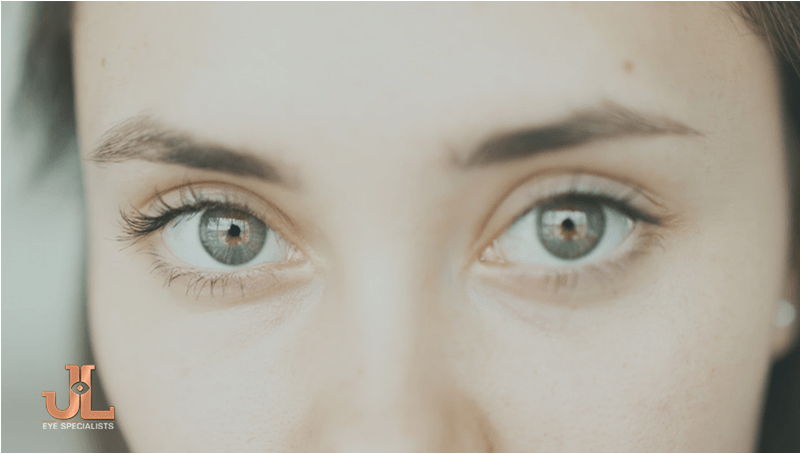The 10 Most Frequently Asked Questions on LASIK

Over 40 million people have had LASIK surgery ever since it was introduced nearly 2 decades ago, making it one of the most common procedures in ophthalmology.
In Singapore, where up to 80 percent of the population is estimated to have some form of myopia, the procedure holds a certain appeal.
Book a consultation with Dr Jimmy Lim today to learn more about Lasik Surgery.
Here are the top 10 questions people ask when considering LASIK surgery:1. What results can I expect?
Majority of the patients would achieve 6/6 unaided vision after the surgery, however results may vary for individuals. Some patients who had LASIK surgery may still need a pair of light prescription glasses afterwards, especially those with very high refractive errors prior to surgery. Very high refractive errors also increase your probability of needing a second round of LASIK after some years.
2. What are the risks of LASIK surgery?
The risk of severe complications is estimated to be 1 in 1000 surgeries. Complications such as overcorrection, undercorrection, corneal flap damage, and infections are risks you need to be aware of. Some patients may develop dry eyes, but most of them recover over time.
3. What are factors that might disqualify me from LASIK surgery?
Some pre-existing conditions will make you a poor candidate for LASIK. For instance, people with a history of autoimmune disease and diabetes may be advised to seek alternative treatment. Autoimmune diseases and diabetes make it difficult for doctors to predict how your eyes will recover from the trauma of surgery. Age also plays a factor–patients need to be 18 or older to undergo LASIK procedure because vision may not have stabilized yet. The same applies to pregnant women, whose vision may fluctuate because of hormonal changes. Most doctors advise waiting for a few months after pregnancy before getting LASIK. Lastly, if you work in a field where eyesight is critical, like the military or aviation, be sure to check if your employer has restrictions against LASIK surgery.
4. Will LASIK surgery be painful?
Laser procedures to the cornea may seem painful. However with anesthetic eye drops applied for the procedure, most patients will only feel light pressure on their eyes and are able to tolerate the procedure well.
5. What happens after my surgery?
You may experience mild blurring of vision immediately after surgery. It is advisable to plan for someone to accompany you home on the day of procedure. Your eyes may feel itchy or slight discomfort, especially after the anesthesia had worn off. Patients should return to their doctors if the discomfort intensifies or does not improve. In some cases, patients experience light sensitivity, and halos around lights. Your eyes may look bloodshot, but this is no cause for alarm. Expect these symptoms to improve over the course of the next few days.
6. How long is the recovery period after LASIK?
LASIK is an outpatient procedure, meaning that you can go home the same day as the surgery. It is recommended to take a few days off work to give your eyes a chance to rest, and for most of the symptoms to go away. Your vision might fluctuate for the first 3 months after your surgery. During this period, you may notice halos around bright lights or finds it difficult to see in the dark.
7. What should I avoid doing after LASIK?
Activities that may cause eye strain like reading, watching television, or excessive browsing on your smartphone should be avoided 24 hours after the surgery. Avoid swimming in pools, hot tubs, and the sea for the next month or two, to avoid risk of infection. Remember that you have essentially a healing wound on your eye, and should treat it as such.
8. How much is the surgery?
In Singapore, LASIK costs roughly SGD $2,000 to $6,000 per eye. The price depends on the surgeons and method used.
9. Will my insurance be claimable for this surgery?
Unfortunately, most insurance plans do not cover LASIK surgery.
10. Are there alternative options for LASIK?
There are alternative treatments available to patients besides LASIK surgery. Advanced surface ablation (ASA) deals with the cornea directly by removing a thin layer of epithelial cells on the surface of the eye instead of creating a flap that needs to heal. The cells removed from ASA naturally grow back within a couple of weeks. ReLEx SMILE (Small Incision Lenticular Extraction) is a minimally invasive laser vision correction which do not require creating a corneal flap. Patients can also opt for implantable contact lens which do not require any surgery done on the cornea.
If you have any questions about LASIK not answered above, feel free to send us a message. You can also book an appointment and head to our clinic to discuss the treatment options with our medical director Dr Jimmy Lim in more detail.
Related Posts:
Relevant Services:
Relevant Services:
Our Doctor

DR. JIMMY LIM
Gleneagles Medical Centre
6 Napier Road #07-10,
Singapore 258499
Phone: +65 6258 8966
Fax: +65 6258 8766

